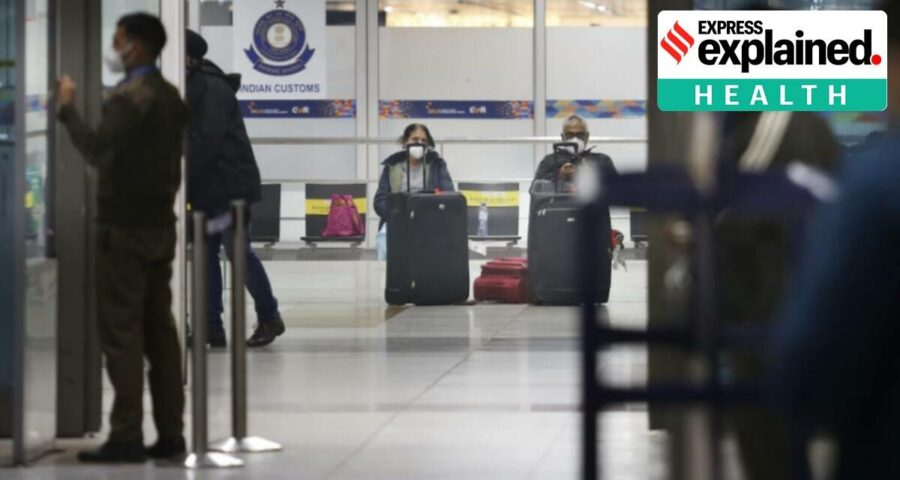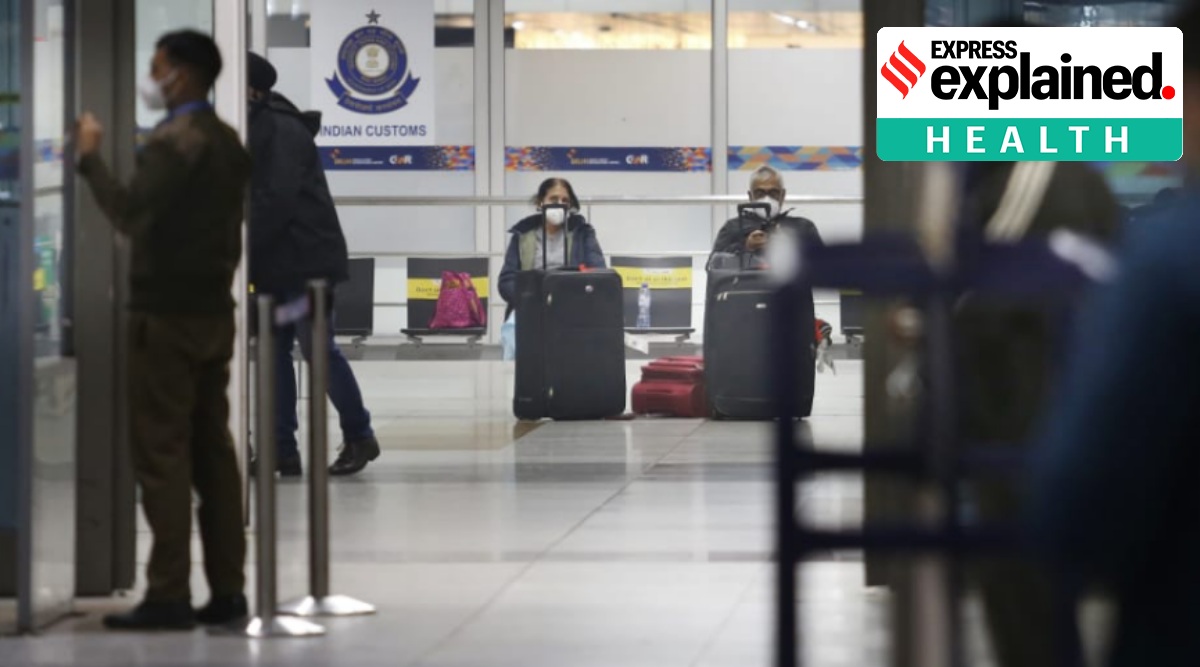Covid-19 variant Omicron FAQ: Here's what the government has said on a third wave of coronavirus in India, whether vaccines will work, precautions to be taken, and diagnostic methods to detect the new strain.
The Union Health Ministry Friday issued answers to Frequently Asked Questions (FAQs) on Omicron – the new variant of Covid-19 – highlighting that given the fast pace of vaccination in India and high exposure to the Delta variant as evidenced by high seropositivity, the severity of the disease is “anticipated” to be low.
Is there a possibility of a third wave in India due to the emergence of Omicron?
The Health Ministry has said Omicron cases are increasingly being reported from countries outside of South Africa and given its characteristics, it is likely to spread to more countries including India. “However, the scale and magnitude of the rise in cases and most importantly the severity of disease that will be caused is still not clear,” the ministry.
It further said that given the fast pace of vaccination in India and high exposure to Delta variant as evidenced by high seropositivity – “the severity of the disease is anticipated to be low. However, scientific evidence is still evolving”.
Will the existing vaccines work against Omicron?
The health ministry has said that while there is no evidence to suggest that existing vaccines do not work on Omicron, “some of the mutations reported on Spike gene may decrease the efficacy of existing vaccines”. “However, vaccine protection is also by antibodies as well as by cellular immunity, which is expected to be relatively better preserved. Hence vaccines are expected to still offer protection against severe disease, and vaccination with the available vaccines is crucial. If eligible, but not vaccinated, one should get vaccinated,” it has said.
How concerned should we be about Omicron?
The health ministry has said that it is important to highlight that Omicron has been declared VoC based on the “observed mutations, their predicted features of increased transmission and immune evasion, and preliminary evidence of detrimental change in COVID-19 epidemiology, such as increased reinfections”. “The definitive evidence for increased transmission and immune evasion is awaited,” it has said.
What precautions have been recommended by the health ministry?
The health ministry has said that it is essential to mask yourself properly, take both doses of vaccines if not yet vaccinated, maintain social distancing and maintain good ventilation to the maximum possible.
Can the currently used diagnostics methods detect Omicron?
The health ministry has said that RT-PCR tests detect specific genes in the virus, such as Spike (S), Enveloped (E), and Nucleocapsid (N) to confirm the presence of the virus. “However, in the case of Omicron, as the S gene is heavily mutated, some of the primers may lead to results indicating the absence of the S gene (called as S gene drop out),” it has said.
The health ministry has said this particular S gene drop out along with the detection of other viral genes “could be used as a diagnostic feature of Omicron”. “However, for final confirmation of the omicron variant genomic sequencing is required,” it has said.
Newsletter | Click to get the day’s best explainers in your inbox
Source: Read Full Article


